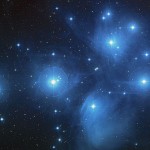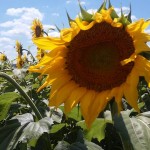Polytheism ought to mean “many deities”, with no other qualifications, and include all varieties that recognise many deities. However, the term has been hedged about with so many codicils and footnotes, it is starting to look like the doctrine of the Trinity (apparently simple, but actually incredibly complicated).
Some “hard” polytheists say that all deities are discrete entities.
I have never been able to reach a definition of “soft” polytheism. I am not sure that anyone identifies as a “soft” polytheist. It appears to be a term coined by “hard” polytheists to mean anyone who does not see all deities as discrete entities, or possibly a monist who sees all deities as facets of the ultimate divine source.
So I do not think that the terms ‘hard’ and ‘soft’ for polytheists are particularly useful. I do think that the term ‘devotional polytheist’ is a good term to distinguish those who feel they want to serve deities from those who feel that deities are allies, or mysteries to be explored.
However, there are some other ideas available.
Lugh Lámhfhada appears to be the same person as Llew Llaw Gyffes (their names both mean Lugh of the skilful hand). There does not seem to be much point in asserting that they are different entities.
However, asserting that all storm deities are the same person seems a bit more problematic. They may be manifestations of the storm in their locality. I can’t accept that Thor, Taranis, Perkūnas, Yahweh, Jupiter, and Zeus are all the same entity. They behave differently from each other. However, I think Thor and Thunor are just variations on Thor’s name, and actually Taranis may just be the Gaulish version of the same name. I alo liked the idea, described in Neil Gaiman’s novel American Gods, that whilst Odin is Wōden in England and Oðinn in Norway, he becomes Mr Wednesday in America. They are all facets of Oðinn, but he manifests differently in different lands (rather like the different incarnations of a human, perhaps, only existing simultaneously).
I also think that there is a Goddess of the universe, a Goddess of the Earth (the Greeks called her Gaia), and local goddesses for countries, regions, tribes, and cities. In my view, these deities encompass one another (like Russian dolls), but they are still distinct individuals.
We are also all manifestations of divinity. It used to be said that all women were manifestations of the Goddess, and all men were manifestations of the God – but as there are more than two genders, and more than two deities, I rephrased it. Some people seem offended by the idea that all deities spring from the same ultimate divine source; but if humans do too, and we know that humans are distinct individuals, I don’t see how saying that all deities spring from the same source is denying their individuality. Whereas the saying “All the Gods are God, and all the Goddesses are one Goddess” (popularised by Dion Fortune) does deny their individuality.
I think that there is an underlying energy to everything, but that this energy does not have a personality; and the more diffuse and large a deity is, the less they have what we would recognise as a distinct personality. Local deities and spirits of place take on the characteristics of their locality, and their personalities are formed by their interactions with other people (and the same is true of humans).
No entity is discrete and separate, existing in a vacuum unaffected by other entities. Humans and other animals are distinct entities; we eat, breathe, and excrete, exchanging matter with our surroundings. We exchange ideas and moods with the people and places around us. We are interpermeable with our environment.
However, the view that we are all one is going too far in the opposite direction. We exist as distinct beings within the cosmos.
We also have to accept that we just don’t know what the nature of deities is. We scarcely understand the nature of consciousness in humans – how then can we claim to understand it in deities?
The names and forms we ascribe to deities are, in all likelihood, our anthropomorphic projections of what they are like. In an excellent post entitled “Gods like mountains, gods like mist“, Alison Leigh Lilly points out that deities are very probably shaped like something other than humans:
Because I do not believe that humans are the only beings with agency in the world, I do not expect my gods to express their agency in the same ways that human beings do. There are gods who forever remain elusive, whose identities shift with the landscape, the seasons and the stars. And there are gods so intimate that they are never really absent at all, and meeting them is not a matter of inviting their presence but rather of quieting my own expectations and learning how to listen.
I think that deities are fluid and changing. A deity may start out as the mind of a natural phenomenon, or a deified human, or the mind of a place or a region; and possibly deities can merge, and divide. I think that deities are on their own path of development, as the Hindu story of Indra and the Ants attests.
Ultimately, however, the nature of deities is a mystery, and (in my experience) the more concrete and definite we try to make our understanding of it, the more we lose the presence of Mystery.
So let a thousand theological flowers bloom! And let’s not be too quick to assume that any of us are right about any of it. A number of different theological schools of thought exist in Hinduism, and they seem to manage quite well.












